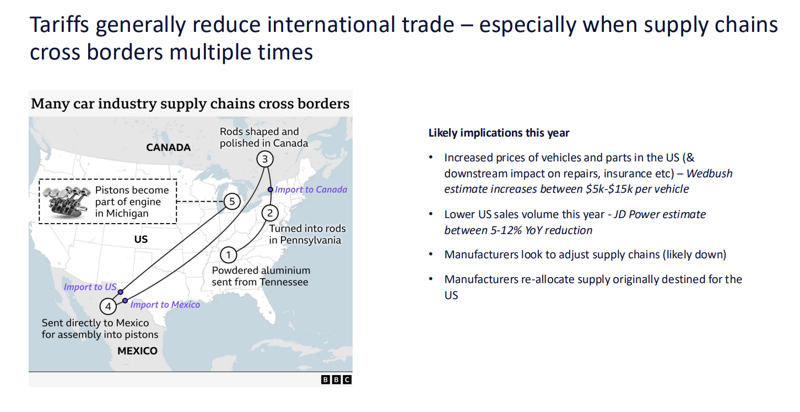Chancellor Rachel Reeves has signalled that the UK is prepared to slash tariffs on US-made vehicles in a strategic bid to revive trade talks with the Trump administration.
In remarks delivered during her visit to Washington, Reeves said she wants to reduce both tariff and non-tariff barriers between the UK and US, hinting at a willingness to lower the 10% duty on US-built cars to just 2.5%.
This comes as part of broader negotiations aimed at lifting the 25% US tariffs currently levied on UK car, steel, and aluminium exports.
“Our objective is to build a deeper trading relationship with the US,” Reeves told the BBC. “We are willing to reduce UK trade barriers where it supports national interests – including for the auto sector.”
The potential removal of these tariffs could create a more favourable operating environment, especially as companies like Ford, Stellantis, and BMW reassess their production footprints in response.
A document circulated earlier this week among US business groups proposed cutting UK tariffs on US vehicles to 2.5% as part of the talks.
Reeves has expressed openness to that arrangement, provided it leads to broader reciprocal benefits for UK industry at a time when the UK is emerging as the main driver of European market growth in March with volumes up by 13%.
While Reeves said the UK was not “rushing into a deal,” she remained optimistic that a framework could be agreed that supports jobs, investment, and future EV competitiveness.
Jon Davies, new car director at Auto Trader, delivered a stark message for car makers during a April 23 webinar. “If you’re a global manufacturer, there’s a lot changing right now,” he stated, “particularly if you’re a manufacturer who produces in the UK.”
Davies outlined a trio of major policy developments unsettling the sector: the new US tariffs, changes to the UK’s zero emissions vehicle mandate, and a looming Supreme Court decision on finance commissions. “If you put yourselves in the shoes of a manufacturer,” he said, “quite a few of those things are quite significant changes to the kind of rule book in which you play.”
On tariffs specifically, Davies warned of a serious disruption to the finely tuned logistics underpinning international vehicle production. “We are seeing tariffs introduced by the US on any exports into the US market,” he explained, “they’re now going to be faced with a tariff of 25% that came into effect at the start of April.”
More changes are imminent: “There is also to be an additional tariff on parts that’s coming into effect in May,” Davies added, noting that the tariff level “depends on where those parts are made with countries like China, Indonesia, and Vietnam among those likely to be hit.
For Davies, the broader issue is the vulnerability of global supply chains. “What you might think of as quite a simple part in a car has actually likely touched multiple countries, even to become a single part,” he said. Citing the case of wiring looms largely manufactured in Ukraine, he underscored how fragile the system is: “Until that point, most people didn’t know that.”
“This is obviously causing a lot of brands manufacturers to think really hard about what they would do with their production.”
For vehicles destined for the US market, Davies posed the dilemma manufacturers now face: “Raise prices in the US and maybe sell less of the thing, keep prices the same, take the margin hit, or think about selling those vehicles into other markets.”
He also pointed to the likely economic consequence: “Most economists are forecasting there’ll be less new car sales in the US this year, assuming the tariffs go ahead and carry on as they currently are.”
For the UK, however, there may be an unexpected silver lining. “In the short term, it’s likely that for some manufacturers, the UK is actually reasonably well placed to take a little bit more supply,” Davies said, noting that UK GDP is relatively strong and new car registrations have started the year on a positive note.


